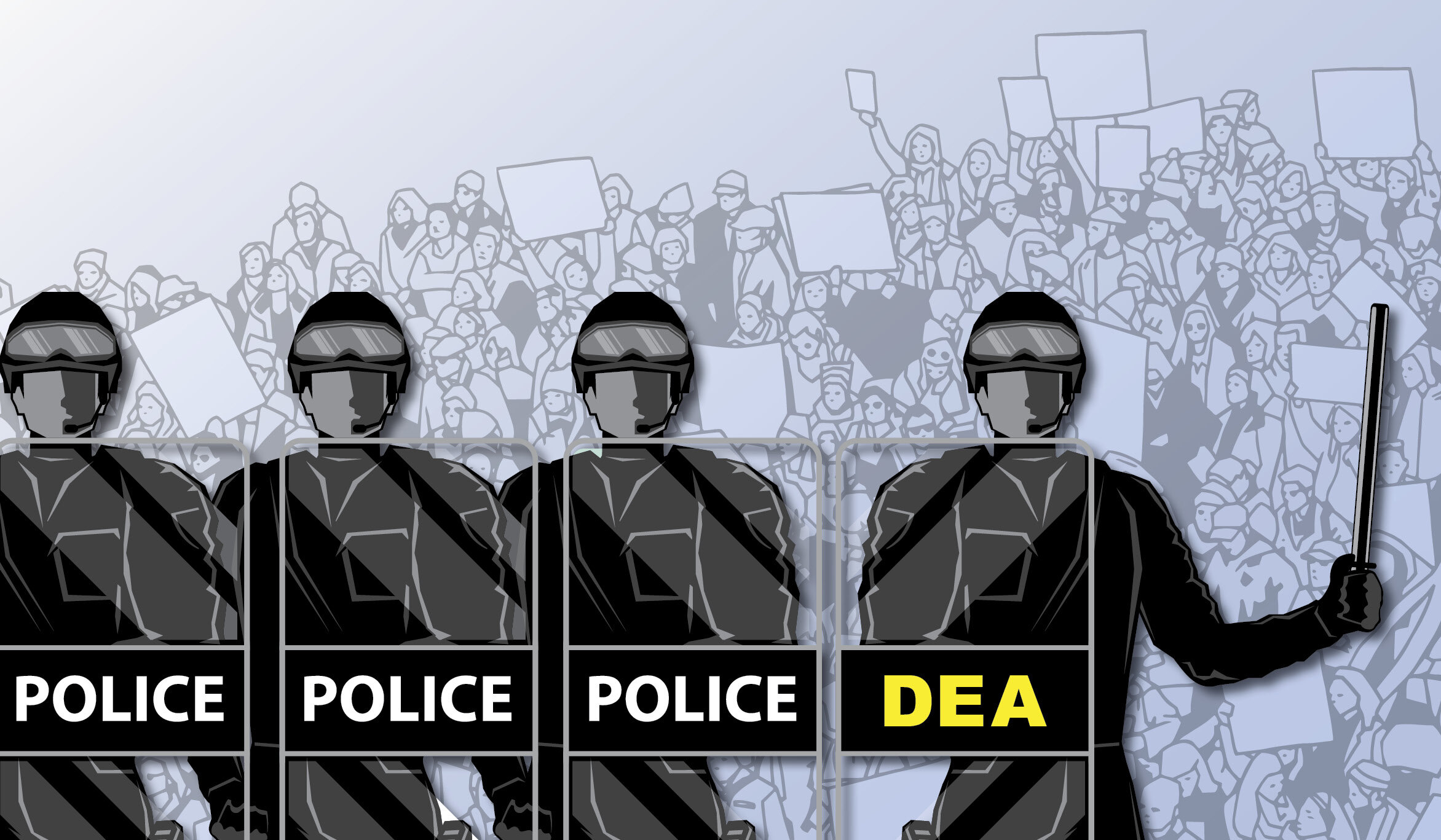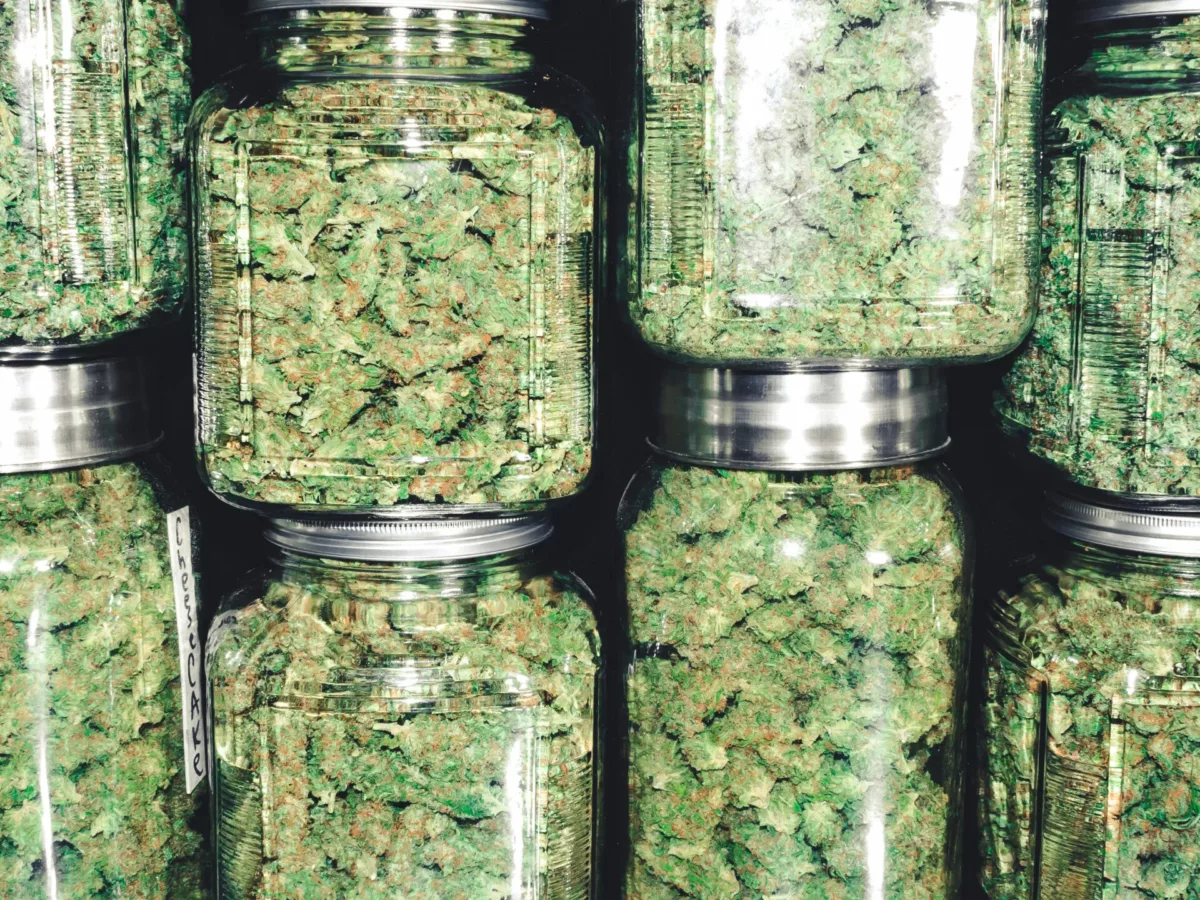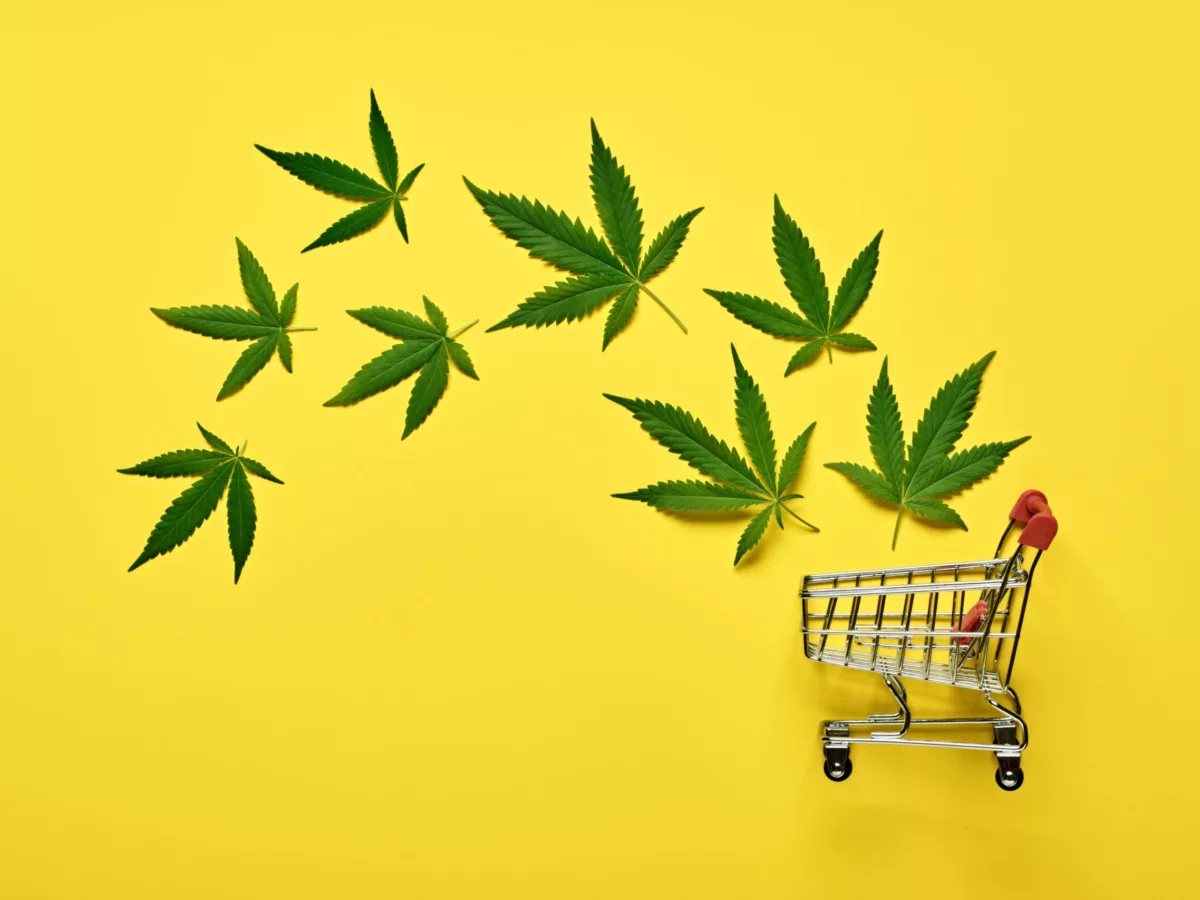As first revealed by Buzzfeed, the Drug Enforcement Administration (DEA) has been given additional policing powers under the Trump administration to surveil protesters. Generally, the DEA can only enforce drug-related crimes but this temporary adjustment means that the DEA’s resources and surveillance network can be used towards those marching in protest of the police killing of George Floyd and organizing in other ways that are understood as protected by the First Amendment.
According to the Department of Justice memorandum, the DEA will “provide support on a nationwide basis to enforce federal criminal laws in the wake of protests arising from the death of George Floyd…on a nationwide basis for a period of fourteen days.” That period began on June 2.
This connection between protest and the use of drugs recalls the very origins of the drug war in America under President Richard Nixon. A 1994 quote from former Nixon domestic policy adviser John Ehrlichman articulated the true intentions of the war on drugs in no uncertain terms. “The Nixon campaign in 1968, and the Nixon White House after that, had two enemies: the antiwar left and black people,” Ehrlichman said. “We knew we couldn’t make it illegal to be either against the war or blacks, but by getting the public to associate the hippies with marijuana and blacks with heroin, and then criminalizing both heavily, we could disrupt those communities.”
The chilling announcement expanding DEA power is concerning those fighting to maintain First Amendment rights such as the American Civil Liberties Union (ACLU) and drug reform advocates such as The National Organization for the Reform of Marijuana Laws (NORML).
Hugh Handeyside, a senior attorney at the ACLU spoke to Buzzfeed. “Drug enforcement agents should not be conducting covert surveillance of protests and First Amendment protected speech,” Handeyside told Buzzfeed. “That kind of monitoring and information sharing may well constitute unwarranted investigation of people exercising their constitutional rights to seek justice. The executive branch continues to run headlong in the wrong direction.”
NORML Political Director Justin Strekal warned that because cannabis remains federally illegal, people who use cannabis, even in states where it is legalized for recreational adult use or medicinal use are potentially within the scope of DEA investigations.
“Despite changes in the legal status of cannabis in the majority of US jurisdictions, marijuana possession and use remains a violation of federal law. The DEA possesses the power to strictly enforce these violations of law,” Strekal said in a press release. “Because we know that the DEA is playing a more prominent role in surveilling these activities and taking law enforcement actions, NORML reminds anyone participating in these events to refrain from the possession or use of cannabis while doing so.”
More broadly though, Strekal connected this expansion of DEA powers to how the DEA has enforced the drug war far beyond cannabis.
“The DEA has long misused its drug enforcement powers, and especially its powers to enforce federal marijuana prohibition, to target dissident groups and populations of color,” Strekal said.. “Therefore, it is hardly a surprise that this agency is seeking to greatly expand its power and scope during these tumultuous times to further target those who have been disproportionality impacted by both police misconduct and the war on drugs and are daring to speak out against it.”
Illustration by Kathy Wyche






